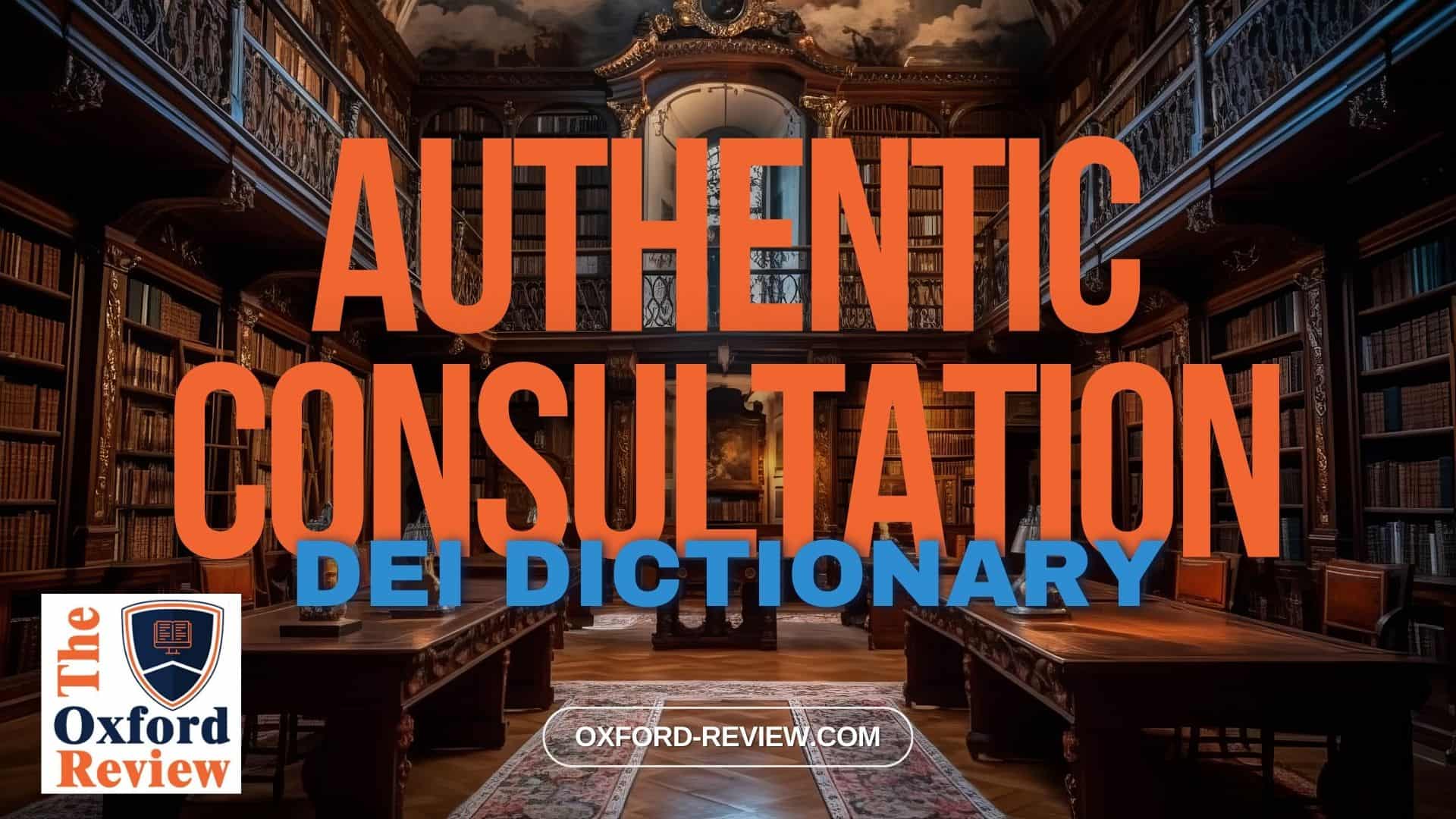Authentic Consultation – Definition and Explanation

Authentic Consultation: Fostering Diversity, Equity, and Inclusion
In the realm of Diversity, Equity, and Inclusion (DEI), authentic consultation stands as a cornerstone for building truly inclusive environments.
Definition:
Authentic consultation refers to the genuine engagement of diverse stakeholders in decision-making processes. It involves actively seeking input, feedback, and perspectives from individuals representing various backgrounds, experiences, and identities. Unlike tokenistic approaches, authentic consultation goes beyond surface-level inclusion to embrace the richness of diverse viewpoints.
Significance:
Authentic consultation plays a pivotal role in advancing DEI goals within organisations. By involving marginalised groups in decision-making processes, it ensures that policies, programs, and initiatives are truly reflective of the needs and realities of all stakeholders. This fosters a sense of belonging and inclusivity, ultimately leading to better outcomes and a more equitable workplace culture.
Key Principles:
- Inclusivity: Authentic consultation involves reaching out to a diverse range of stakeholders, including those who are traditionally underrepresented or marginalised.
- Active Listening: It’s not enough to invite diverse voices to the table; authentic consultation requires actively listening to their perspectives, concerns, and suggestions.
- Transparency: Transparent communication is essential throughout the consultation process, ensuring that stakeholders understand how their input will be used and what decisions will be made.
- Respect: Every voice should be treated with respect and dignity, regardless of background or position within the organisation.
- Action-Oriented: Authentic consultation should lead to tangible actions and outcomes, demonstrating a commitment to meaningful change.
Example:
Imagine a company planning to implement a new diversity training programme. Instead of designing the programme in isolation, they initiate authentic consultation by forming a diverse advisory committee consisting of employees from different racial, gender, and cultural backgrounds. This committee is actively involved in shaping the curriculum, providing input on topics, delivery methods, and materials. Throughout the process, the company solicits feedback, incorporates suggestions, and ensures transparency about how the input is being used. The result is a training programme that reflects the diverse perspectives and needs of the workforce, leading to increased engagement and effectiveness.
Conclusion:
Authentic consultation is not just a checkbox to tick off in DEI initiatives; it’s a fundamental principle that drives meaningful change. By embracing inclusivity, active listening, transparency, respect, and action, organisations can harness the power of diverse perspectives to create truly equitable and inclusive environments. As we continue to strive for DEI excellence, authentic consultation must remain at the forefront of our efforts.
References:
Padley, R. H. (2023). The Use of Authentic Consultation Recordings in the English for Medical Purposes Classroom. Scripta Manent, 17(2), 21-41. https://scriptamanent.sdutsj.edus.si/ScriptaManent/article/view/401
Be impressively well informed

Get the very latest research intelligence briefings, video research briefings, infographics and more sent direct to you as they are published
Be the most impressively well-informed and up-to-date person around...
